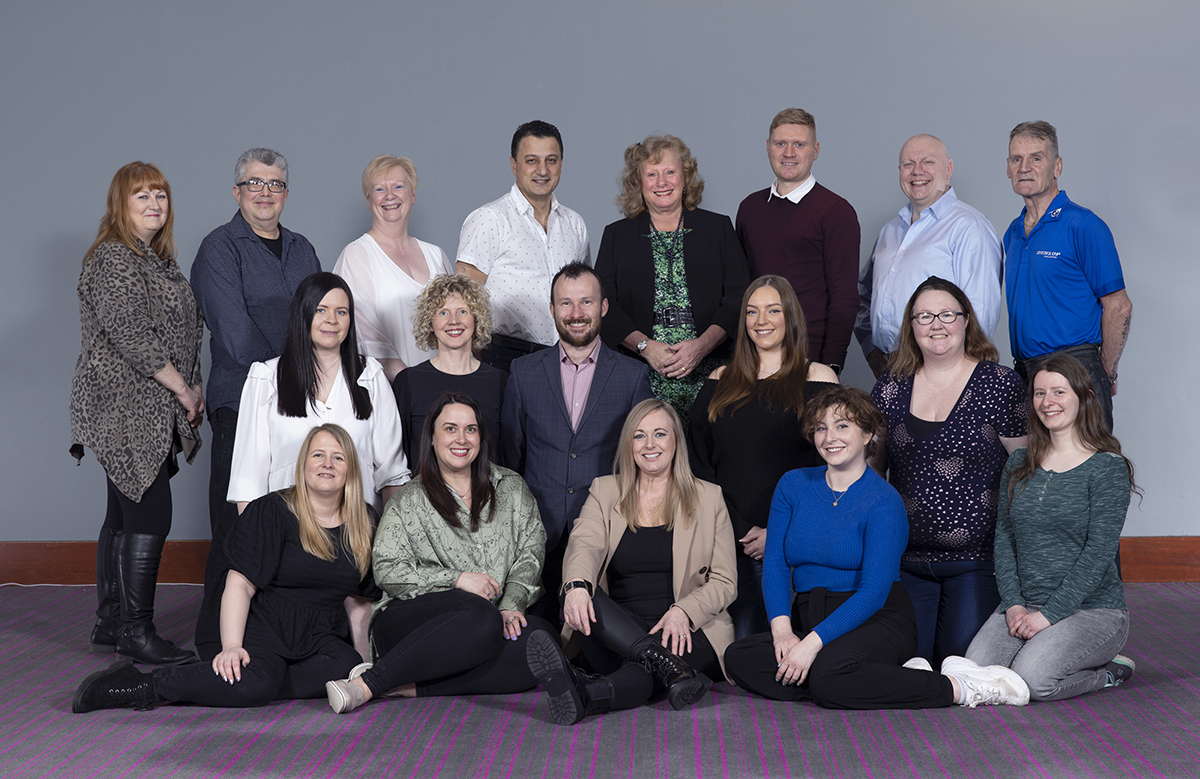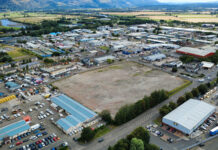
GLASGOW-based construction management training specialist Esteem Training has told Project Scotland that the recent switch to become an employee-owned enterprise will help preserve jobs in Scotland and maintain the culture of the business.
Shares in the business previously owned by founder Trudy Mackenzie, operations director Martina Höfner, and finance director Ian Grigg, have been transferred into an Employee Ownership Trust (EOT).
Employee-elected staff members will now sit on the board which is responsible for the day-to-day operations of the training provider, and also a trustee board established to ensure everything the company does is for the benefit of the employees as owners.
In an interview with Project Scotland, Martina Höfner revealed succession planning has been under consideration for more than five years, but the possibility of an employee-ownership model first emerged last summer.
“We’d looked at various options,” she said. “We’d done a management buyout three years ago when Trudy, the founder of the company, sold shares to myself and Ian.
“In June 2021, we attended a Co-operative Development Scotland (CDS) webinar, which was all about employee ownership. It showcased some of the companies that had been through it and Trudy and I instantly saw a fit culturally with where we were at with Esteem Training. We decided to take it further and, to be honest, we were both really excited. I’d heard of employee ownership but I thought it was for larger companies. That webinar was excellent. Of the businesses showcased, two of them were micro SMEs.”
CDS, which is part of Scottish Enterprise, undertook a viability study and put Esteem in touch with an employee ownership advisor – Andrew Harrison of Co-Ownership Solutions. An independent valuation of the business was then carried out.
The Esteem team learned about the plans early on in the process, and several face-to-face meetings were conducted to keep the team up to date with developments and make sure they were fully invested in the change.
“Being a small business, succession planning is always really difficult,” Martina added. “Trudy McKenzie knew she wanted to retire or at least semi-retire. It presented a really positive option for all three of the shareholders because we’re all different ages and all at different stages of our careers.
“Trudy wanted to step back from the day to day running of the business, but still wanted to have some sort of involvement. It just gave us that option. A trade sale wouldn’t have done that, because Ian and I would either have been retained for a year working for a different company, or we would have simply sold shares and looked for something new. We love our jobs so didn’t want to do that.”
Trudy will be the founder trust member on the newly established trustee board. She will be joined by an independent trustee and the firm’s business development manager, who was voted in by the team.
Martina revealed the new ownership model has benefits for both staff and shareholders. Employees will have a much larger say in the running of the company and can benefit from a tax-free bonus of up to £3,600 a year in what basically amounts to a profit share. Shareholders, meanwhile, don’t pay capital gains tax when they sell their shares to employees. They also get to ensure the culture of the company stays the same and the team’s jobs are sustained.
The move marks a major milestone for Esteem, which was founded in 1986, initially as an IT and project management company. When Martina joined around 2006, the business was doing a lot of work with Investors in People Scotland and designed their training programme. At that time Esteem worked all over the UK and Ireland, specialising in training and development.
The firm moved into construction before the Olympics in London in 2012 after landing a contract to work at the Athlete’s Village as it was being built.
For the past five years, Esteem has been delivering Modern Apprenticeships and enjoys advanced vocational training partnerships with a string of major construction and civils businesses including Bell, Cala, CCG, George Leslie, and Haldane Construction Services.
Referring to industry skills gaps, Martina revealed there are currently ‘huge issues’ around supervisory management and leadership roles. That and sustainability are two of the major challenges facing the construction training sector.
“I think sometimes in construction there’s such an ownership on health and safety that it’s very difficult for SMEs to then invest and spend the time on the management skills, the leadership side,” Martina explained. “We’re seeing a big gap in these in larger SMEs where that management and leadership infrastructure is vital. They might have 200 employees but they don’t have that infrastructure in place to grow.
“We need to continue prioritising investment in training. Meeting the net zero target is going to be a huge challenge. The Scottish Government is aware of the skill shortages. The SVQs are already being developed so they’ve got elements of sustainability built in. And we’ve just recently moved to the new qualifications in construction management and senior management, which have modules on sustainability.”
Martina added that the industry is going to have to be proactive in upskilling people to carry out the retrofitting that’s going to be required in future years. She’s heartened by the level of innovation she’s currently seeing, highlighting the work taking place at the Construction Scotland Innovation Centre’s factory in Hamilton. “You walk in there and see exoskeletons people are using in roofing, virtual reality hard hats being used on site to beam information back to the office, and machines that can work offsite manufacturing in half the time,” she said. “In offsite manufacturing, even in the ten years I’ve been in construction, I have seen such an increase. Companies are investing in having their own manufacturing offsite. That’s going to bring different requirements for us as construction training providers. We’re going to have to adapt because we’ll not be going out to site to these supervisors, they’re going to be in a factory supervising a team to do the build under a roof.”








